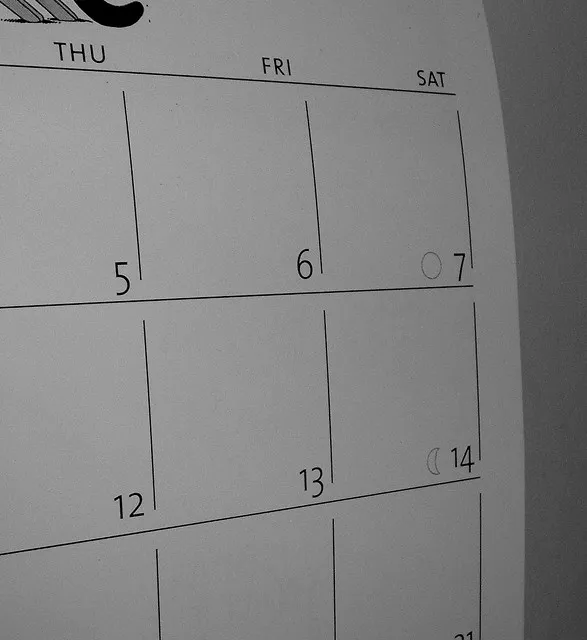Friday the 13th, Again Already
Friday November 13, 2015



Last week, I was in a convenience store and the owner was watching a gameshow. I think it was Who Wants to be a Millionaire, but I am not sure. I am also not sure I heard the question right, but I think it was,
This day of the month is more likely to land on a Friday than any other day of the week.
Of course, you’re supposed to think of the 13th. But I think, that can’t be right. Why would that happen? The calendar is not so unusual. If I had read the Wikipedia page before, it would have told me that for any given 400-year cycle (covering all of the Gregorian leap day rules), it’s true.
But I scienced it, instead.
First, I tried working over a perpetual calendar, but the one I had had small print and it was too difficult to read. I kept getting lost. Then I decided a statistical argument was sufficient to meet my need, so I was about to Monte Carlo it. I really wanted a lot of points, and I figured I’d have to check about a million months. Then I realized just how many months that is.
Realizing the 400 year-cycle limited the possible options anyway, and that is only 4800 months, checking a million or more random months seemed excessive. So I wrote this program:
library(lubridate)
year.start <- 2000
year.end <- 2399
day13 <- rep(0, 7)
for(i in year.start:year.end) {
for(j in 1:12) {
thedate <- paste(j, "13", i, sep = "/")
thedate.dt <- as.Date(thedate, "%m/%d/%Y")
dow <- wday(thedate.dt)
day13[dow] <- day13[dow] + 1
}
}
print(day13)And I get the output,
[1] 687 685 685 687 684 688 684And that agrees with Wikipedia, which tells me I should have looked there, first. But if you’re feeling a bit unlucky on the 13th, and it’s a Friday, and you feel like it comes around more often than it should…you’d be right.
Image by Katherine / Flickr.